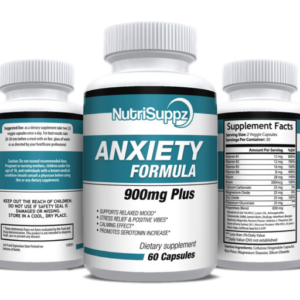30 May How anxiety takes over our lives?
Anxiety can profoundly affect our lives in various ways, influencing our thoughts, behaviors, emotions, and physical health. Here’s how anxiety can take over our lives:
1. Cognitive Impact
Constant Worry: Anxiety often involves persistent and excessive worry about various aspects of life, such as health, work, relationships, or everyday situations.
Negative Thinking: It can lead to a pattern of negative thinking and expecting the worst outcomes.
Concentration and Memory Issues: Anxiety can impair concentration and memory, making it difficult to focus on tasks or recall information.
2. Emotional Impact
Fear and Apprehension: Persistent feelings of fear, apprehension, and unease can dominate one’s emotional landscape.
Irritability: Anxiety can make individuals more prone to irritability and mood swings.
Overwhelming Feelings: The emotional burden of anxiety can become overwhelming, leading to feelings of helplessness and despair.
3. Behavioral Impact
Avoidance: People with anxiety may avoid situations or activities that trigger their anxiety, which can limit their experiences and opportunities.
Compulsive Behaviors: Some individuals develop compulsive behaviors (e.g., checking, counting) in an attempt to manage their anxiety.
Social Withdrawal: Anxiety can lead to social withdrawal and isolation, as individuals might fear judgment or negative evaluation by others.
4. Physical Impact
Physical Symptoms: Anxiety can manifest physically through symptoms like increased heart rate, sweating, trembling, headaches, muscle tension, and gastrointestinal issues.
Fatigue: Chronic anxiety can lead to persistent fatigue and a feeling of being physically drained.
Sleep Disturbances: Difficulty falling asleep, staying asleep, or experiencing restful sleep is common among those with anxiety.
5. Impact on Daily Functioning
Work and Productivity: Anxiety can interfere with professional life, reducing productivity, and job performance, and increasing absenteeism.
Academic Performance: Students may struggle with anxiety, affecting their academic performance and participation.
Daily Activities: Even routine daily activities can become challenging, and individuals may find it difficult to carry out everyday tasks.
6. Relationship Impact
Strained Relationships: Anxiety can strain relationships with family, friends, and partners due to misunderstandings, irritability, or withdrawal.
Communication Issues: It can hinder effective communication, leading to conflicts or misunderstandings.
Dependency: Some individuals may become overly dependent on others for reassurance and support, which can create an imbalance in relationships.
7. Long-Term Health Impact
Chronic Health Issues: Prolonged anxiety can contribute to the development of chronic health conditions such as cardiovascular disease, hypertension, and weakened immune function.
Mental Health Disorders: Anxiety can coexist with or lead to other mental health disorders, such as depression or substance abuse disorders.
Managing and Overcoming Anxiety
Addressing anxiety typically involves a combination of strategies:
Therapy: Cognitive-behavioral therapy (CBT) and other therapeutic approaches can help individuals understand and manage their anxiety.
Medication: In some cases, medication may be prescribed to manage symptoms.
Lifestyle Changes: Regular exercise, a healthy diet, adequate sleep, and mindfulness practices can help reduce anxiety.
Support Systems: Building a strong support network of friends, family, or support groups can provide emotional support and understanding.
Stress Management: Learning and applying stress management techniques can reduce overall anxiety levels.
Understanding how anxiety affects our lives is crucial in seeking appropriate help and adopting strategies to manage and reduce its impact.


No Comments